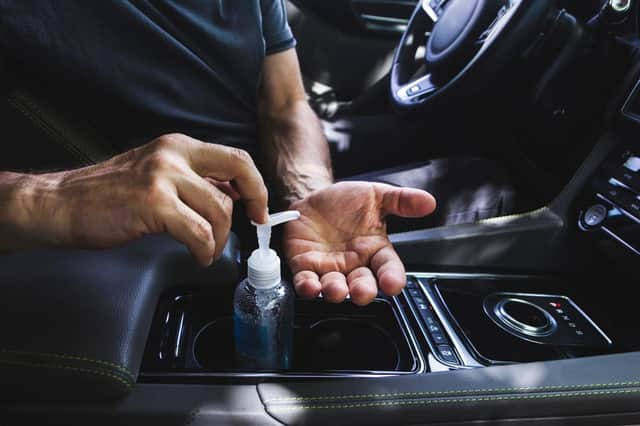Here’s why you shouldn’t leave hand sanitiser in your car


Many people are regularly using hand sanitiser at the moment, with a bottle probably tucked in your pocket or bag when you leave the house.
But experts are now warning against leaving hand gel in your car, especially during warmer weather.
Alcohol content
Advertisement
Hide AdAdvertisement
Hide AdFlorida Gold Coast University Associate Professor, Dr Greg Boyce, told Drivetribe that warm temperatures can cause the alcohol in hand sanitiser to evaporate.
Temperatures inside vehicles can quickly rise, especially if it has been parked in direct sunlight, but as alcohol is the active ingredient to help kill both bacteria and viruses, the sanitiser then won't be able to work in the way that it’s supposed to.
Warm hand sanitiser can also irritate the skin.
The US Centers for Disease and Control Prevention (CDC) says, “Washing hands with soap and water whenever possible because handwashing reduces the amounts of all types of germs and chemicals on hands.
“But if soap and water are not available, using a hand sanitiser with at least 60 per cent alcohol can help you avoid getting sick and spreading germs to others.”
Advertisement
Hide AdAdvertisement
Hide Ad“When using hand sanitiser, apply the product to the palm of one hand (read the label to learn the correct amount) and rub the product all over the surfaces of your hands until your hands are dry,” the CDC advises.
Where should I store my hand sanitiser?
Hand sanitiser could also potentially damage your car if it leaks.
Ford engineers have previously conducted research into this, finding that the ingredients in the sanitiser can cause the interior surfaces of your car to wear prematurely.
The Health Sciences Authority (HSA) explains, “Alcohol-containing hand sanitisers should be stored in a cool place. They should not be kept in places near open flames and heat, particularly for those in bigger volumes (more than 100ml).
Advertisement
Hide AdAdvertisement
Hide Ad“Always ensure that the lids and caps of the hand sanitisers are properly sealed. This is to avoid leakage onto other items (e.g. pockets, clothes, bags, vehicles and bedding) which may become a potential fire hazard.”